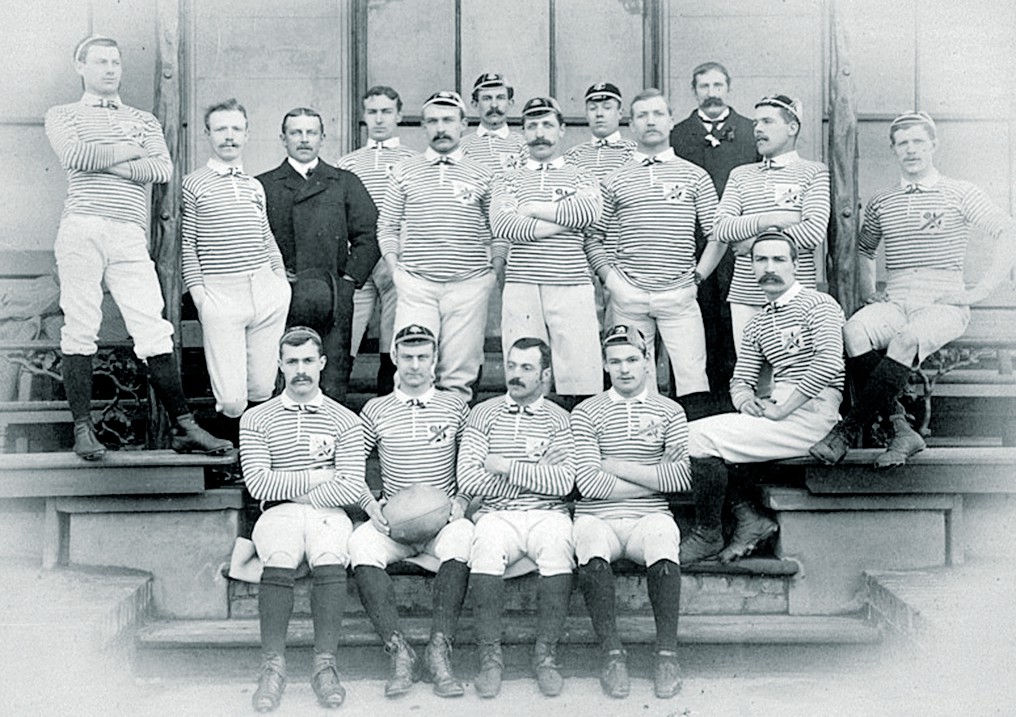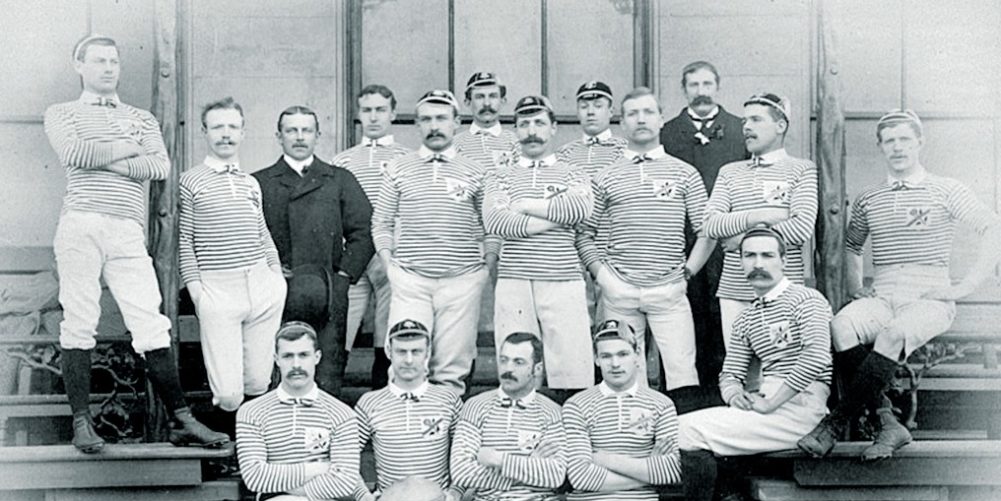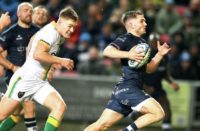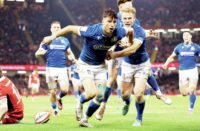Mention of Jewish rugby players last week, in connection with the forming of the Tel Aviv Heat franchise, centred mainly on the strong and enduring tradition in South African rugby – but if you dig a little deeper there have been a number of notables among other nations.
Many also seem to have been singular characters and high achievers in other walks of life.
One of the most interesting is Broughton Park forward Frank Moss, the most athletic member of a large sporting family in Manchester who played three Tests for England in 1885 and 1886 before he emigrated to New York around which lies a considerable tale.
Frank's full name was Frank Jacob Slazenger Moss and he was the much younger brother of Ralph and Albert Slazenger Moss who founded the world famous sport's equipment and clothing company in 1881.
With the Slazenger company growing hand over fist as the world discovered organised sport, young Frank was sent to New York to start up an American branch to the business. He continued to oversee the business working out of East 28th Street until his death in 1938.
The Slazenger brand went from strength to strength worldwide and in 1902 started the longest continuous partnership/sponsorship in the sporting world when it began providing the tennis balls for Wimbledon.
John Raphael, meanwhile, was the son of a wealthy Belgian banking family who moved to Britain where he excelled at both rugby and cricket. An exciting utility back he scored tries in three of his four Varsity matches for Oxford and played in nine Tests for England between 1902 and 1906 including against the All Blacks at Crystal Palace in 1905.
As a cricketer, he is still the only batsman to score a double century for Oxford against Yorkshire, whose attack that day included Wilfred Rhodes.
He died in his native Belgium at the Battle of Messines in 1917 and had occupied some of his downtime on the Western Front writing a rugby coaching manual – Modern Rugby Football – which was published posthumously by his mother the following year.
Over in Ireland, Dr Bethel Solomons was a stalwart forward and ever-present for ten Ireland internationals between 1908-1910 before his medical studies took over completely – he later became one of the world's leading obstetricians and gynaecologists.
The son of a merchant family who moved from Hull, Solomons mixed in rarefied literary circles and his father Maurice, an optician, warranted a mention in Ulysses by James Joyce while Bethel himself made it a family double with Joyce referring to him in F innegan's Wake.

In Australia there was a notable father and son double for the Rosenblums who originally hailed from what is now Belarus. Father Myer, who was a burly flanker and also the Australian hammer champion and record holder, played in four games for New South Wales against New Zealand in 1928.
These matches, which included a win in Christchurch, were later upgraded to Test status.
His son Rupert played in three Tests as fly-half in 1969- 70 including two on tour against the Springboks.
More recently, although not elaborating on his faith, New Zealand flanker Josh Kronfeld has always made a point of identifying himself as Jewish. The clue is probably in his German-Samoan background with his German great grandfather, a former Colonial administrator in German Samoa, which became Western Samoa.
Two Samoan-born great uncles – Joe and Frank Solomon – also played for the All Blacks, the first players from the Pacific Islands to play for New Zealand although they were listed as Maoris at the time.
In the USA a number of the Eagles' better-known Sevens players also adhere to the Jewish faith; Nate Ebner was a notable cross-over player from the NFL while Zach Test scored 143 tries on the World Series for the USA before retiring after a serious concussion.
Test also led a USA team to a bronze medal at the 2009 Maccabi Games in Israel when they defeated the home nation in the 3rd-4th play-off. A graduate of Loughborough University, Test was noted for his leaping and catching of the ball at full tilt, a skill learned from his days as a wide receiver.
When it came to the Maccabi Games, though, the American who shone brightest was South Africanborn Shawn Lipman – also a notable fifteens players – who in a 24-year career competing at the Jewish sporting festival won two golds, one silver and two bronze medals in the Sevens, the last coming in that 2009 tournament when he came out of retirement to compete at the age of 44. Four years later he coached the USA to another gold medal success.



























